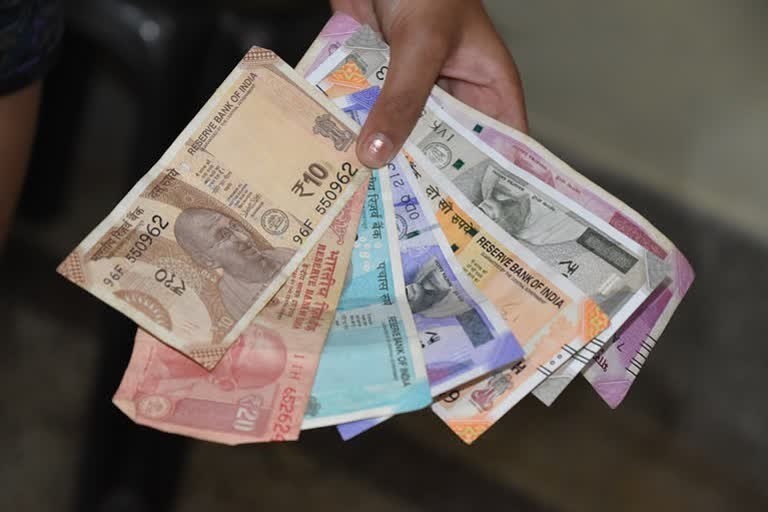New Delhi: After years of making a dignified living, cleaning, cooking and doing a host of other jobs that make them the backbone of many an urban home, part-time domestic helps are reduced to helpless dependence, unable to go to work and waiting out the lockdown in increasing anxiety.
Their employers would love to have them back but the fear of the spread of coronavirus and strict social distancing norms has meant that much of the workforce, comprising mainly women, are stopped from even entering the colony or gated community they work in.
Their future depends on the goodwill of their employers, some who might pay salaries for work not done and some who might refuse. The last month and more has spelt despair for the helps who don't know when the lockdown will end and whether they can get back to work even when it does.
Sushila Kaushalya Devi, who lives in Madanpur Khadar, nearly 12 km from her area of work in south Delhi's C R Park, said one of her three employers preempted the lockdown (announced on March 24) and gave her an advance to stock up on rations.
This would have been okay for the month for her family of four including her husband and two children had it not been for the suddenness of the announcement due to which her brother-in-law's two children, who were visiting at the time, are still with her.
The food which would have lasted the four of us an entire month got over several days ago and there's no money to buy more, she said, adding that she has been unable to collect her salary from the other two employers due to the restrictions on movement.
The money can't be transferred to a bank account because she doesn't have an ATM card and the bank is too far.
Read more:Need to give importance to economy, battle COVID-19: PM to CMs
Married to a vertically challenged man who she said is constantly refused work, Sushila is the sole earning member of the family and struggling to make ends meet with no money coming in for at least another month.
There are about 10-15 lakh women like Sushila in the Delhi-NCR region alone, estimates Maya John of the Gharelu Kamgar Union (GKU) that works with domestic helpers in Gurgaon, Noida, and parts of Rohini in Delhi.
Since there are no official figures documenting the number of people working in this sector, the actual number is likely to be as high as 10-15 lakh, John told PTI.
She said only a few workers were fortunate to receive an advance salary, have access to virtual payment options such as bank transfers, PayTM and Google-Pay, or able to collect their dues from the houses they work in.
Their problems are many, including being harassed by police on the way and lack of public transport. For many, their pre-paid sim cards have run out of money and they have no way of recharging their phones.
Many employers said they were unable to contact their domestic helpers over the phone.
First they face harassment by the police on the way. Even if somehow, through internal lanes and streets, these maids do manage to reach the housing complexes where they work, there is friction with the RWAs. Many are not letting them even collect their salaries, John said.
